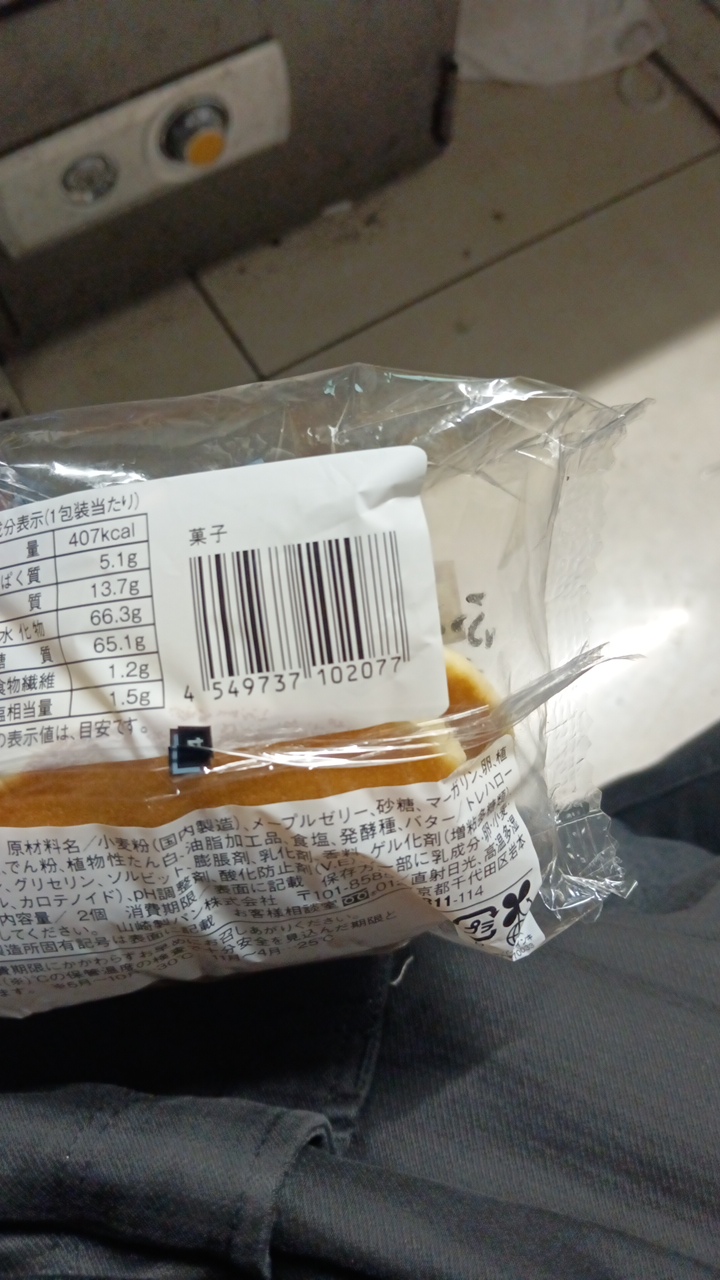
Barcode: 4549737102077
sweets
HALAL
📝 Reason: Islamic dietary verification confirms compliance. As Allah states in Quran 7:157, the Prophet (ﷺ) permitted good things and forbade impure ones. This product contains no carnivorous animals, no reptiles, and no improperly sourced meat—only Halal-certified components.
🏷️ Category: Bakery
📄 Certificates: For One Package, Consume By, Customer Consultation Room, Store In A Cool Place, Out Of Direct Sunlight, And At A High Temperature And Humidity., Ingredients, Contains Milk Ingredients, 2 Pcs
Ingredients:
Details
Are Sweets Halal? Let’s Explore Their Status
For many individuals adhering to Islamic dietary laws, understanding the halal status of food products is crucial. Today, we dive deep into whether sweets are halal, shedding light on their ingredients, E-numbers, and compliance with Islamic guidelines.
Halal Status of Sweets
The Sweets in question proudly boast a HALAL status. Islamic dietary verification confirms this product’s compliance with Islamic law. As stated in the Quran (7:157), the Prophet Muhammad (ﷺ) permitted good things and forbade impure ones. This sweets product contains no carnivorous animals, no reptiles, and no improperly sourced meat—making it eligible for consumption by those observing halal dietary guidelines.
Understanding Ingredients
The ingredients of these sweets include:
- Wheat flour (domestic production): Permissible in Islam.
- Maple jelly: Status complying with halal standards.
- Sugar: A universally permissible ingredient in Islam.
- Margarine: The source will be checked to confirm if it’s halal.
- Egg: Halal and permissible in Islamic guidelines.
- Starch: Fully compliant with halal standards.
- Vegetable protein: Halal as it does not derive from forbidden sources.
- Yeast: Considered halal and commonly used in baking.
- Thickener, Emulsifier, and Flavoring: Usually halal, depending on the source.
- Glycerin: Can be halal; verify the origin for absolute certainty.
- Sorbitol (E420): This food additive is considered halal and is commonly used as a humectant.
- pH adjuster: Generally halal; it’s used to maintain product integrity.
- Antioxidant (v.e.): Must ensure it is sourced halal.
- Carotenoid: Typically halal and added for color.
Detailed E-Number Analysis
Let’s discuss the E-numbers present in the ingredient list:
- E420 (Sorbitol): Used as a thickener, gelling agent, and humectant. Halal; derived from glucose which is plant-based.
Most other ingredients listed fall under permissible categories within Islamic dietary guidelines, affirming their halal status. As a consumer, always checking for reliable halal certification and understanding the sources of each ingredient is essential.
The Importance of Certification and Brand Integrity
This product belongs to the Bakery category, a field where ensuring the halal status is paramount for Muslim consumers. While this product does not specify a brand, looking for recognized halal certification is crucial to trust its halal compliance. Be sure to check the packaging for any halal symbols or labels that authenticate the claim.
Consumer Considerations
When evaluating sweets for halal consumption, always pay attention to the details. Ensure the product is stored in a cool place, away from direct sunlight and high humidity, following the label instructions. Also, consult with customer service for any inquiries concerning ingredients and halal status.
Conclusion
In light of all ingredients being deemed halal and the absence of any non-compliant components, these sweets are not only delightful but also suitable for Muslims seeking guilt-free indulgence. Always remain informed, verify sources, and enjoy your sweets without hesitation.
